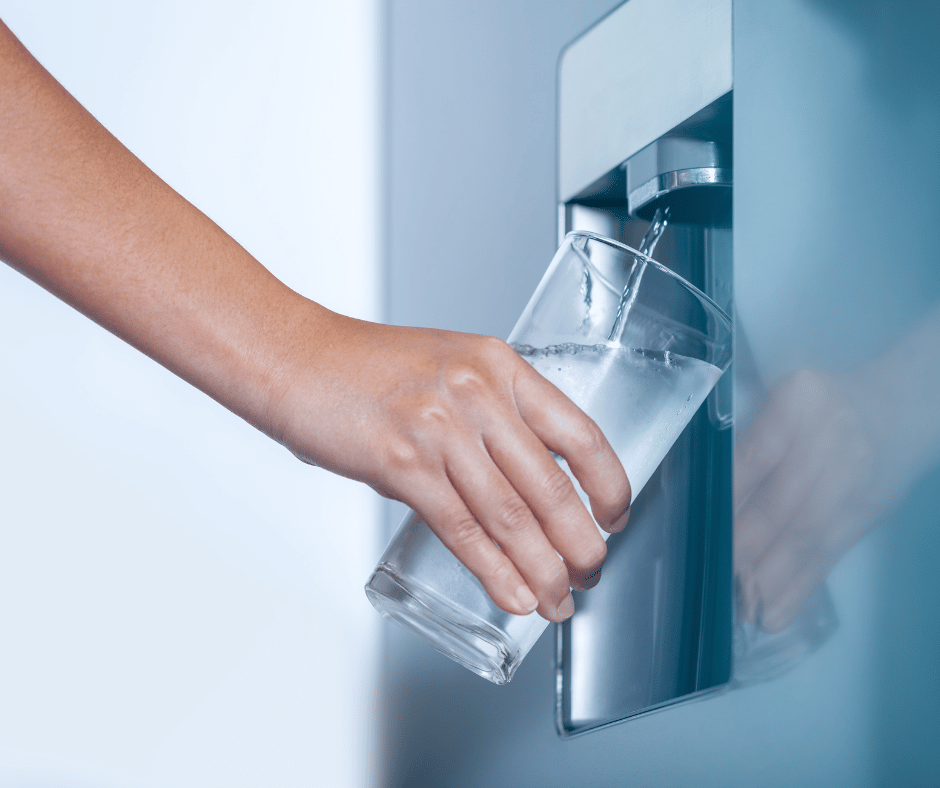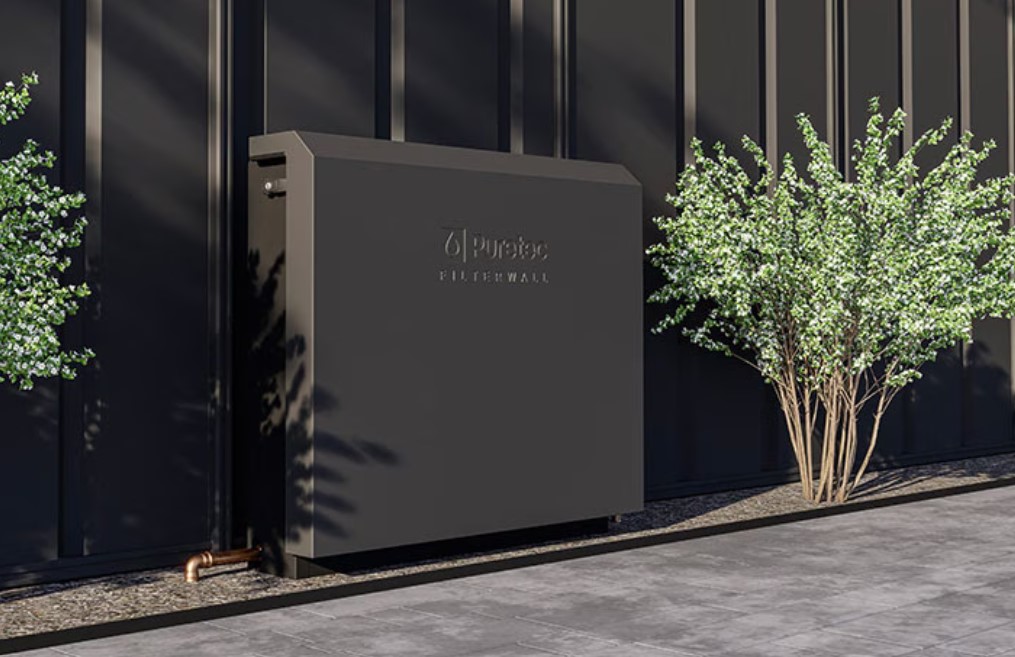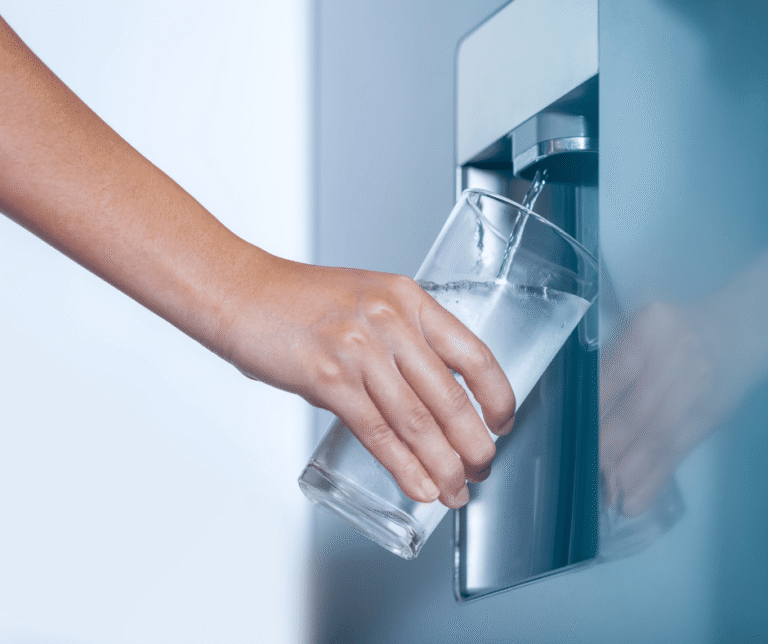Although you may not be able to smell or taste them, PFAS chemicals, often referred to as “forever chemicals”, are quietly infiltrating the water we consume on a daily basis. These substances are notorious for their persistence and widespread presence in our environment, making it crucial for consumers to grasp their implications and the potential risks they present to health and safety. Understanding the dangers associated with PFAS is essential for informed decision-making regarding our water sources and overall wellbeing.
Since their introduction in the 1950s, these chemicals have found their way into a variety of products, such as firefighting foam, fast food wrappers, non-stick cookware, and stain-resistant clothing. The very properties that make PFAS advantageous for manufacturers—such as their exceptional durability—contribute significantly to the environmental challenges they pose: they resist degradation. Once released into the ecosystem, these chemicals can remain for extended periods, accumulating in the soil, water, and even within the human body, which exacerbates the risks linked with prolonged exposure over time.

Crucial Insights into PFAS: Recognising the Risks Posed by “Forever Chemicals”
Recently, Seqwater, the authority responsible for overseeing the drinking water supply in South East Queensland, confirmed the presence of trace amounts of PFAS in both untreated and treated water throughout the region. Although these levels remain low and adhere to national safety standards, the increasing frequency of detections is alarming, especially given that they are now being identified more frequently across various catchment areas. For thorough information, you can explore Seqwater’s dedicated PFAS resources that detail the ongoing monitoring and safety measures implemented to protect public health.
Identifying the Pathways of PFAS Contaminants into Our Drinking Water Supply
PFAS are not intentionally introduced during the water treatment process. Instead, they enter the water supply through various external pathways, including industrial waste, landfill runoff, fire training sites, and stormwater runoff. During rainfall, these chemicals can wash off surfaces such as roads, roofs, and soil, subsequently flowing into the rivers and dams that supply our water treatment facilities. Due to the resilience of these chemicals, even advanced water treatment technologies may struggle to eliminate them completely, raising serious concerns regarding potential health risks associated with their presence in our water supply.
While the hazards associated with these contaminants are currently viewed as low, many households in Queensland are prudently adopting precautionary measures. This is especially true for families with young children, individuals with weakened immune systems, or those reliant on rainwater tanks for their drinking supply. In such cases, the installation of whole-house water filtration systems becomes essential for ensuring peace of mind and safeguarding the health of all household members against potential contaminants.

Evaluating the Effectiveness of Standard Water Filters in Removing PFAS Contaminants
In simple terms, most standard water filters are ineffective when it comes to eliminating PFAS from drinking water.
Common filtration systems such as pitcher jugs, tap-mounted units, and basic under-sink systems are primarily designed to improve the taste of water, reduce chlorine levels, and capture sediment. However, when it comes to addressing PFAS contaminants, these systems do not meet the necessary criteria for effective removal, leaving households vulnerable to harmful substances.
To successfully eradicate these persistent chemicals, a more sophisticated approach is required. Effective removal typically involves:
- Extended contact carbon block filtration techniques that provide ample exposure time
- Anion exchange resins, specifically engineered for such contaminants, or
- Reverse osmosis — advanced technologies that are generally not included in standard, off-the-shelf filters.
This situation raises critical concerns for households using plumbed-in refrigerators. The filtered water may appear clean, yet it is often not specifically treated for PFAS. Most tap filters or refrigerator filter cartridges lack the necessary filtration processes or contact time to significantly lower PFAS levels, thereby putting users at potential risk of exposure to these harmful chemicals.
Recognising the Significance of Whole House Filtration Systems in Reducing PFAS Exposure
This is where whole-house filtration systems, like those offered by Creek to Coast Plumbing, become essential.
These innovative systems treat every drop of water entering your home prior to it reaching taps, appliances, or plumbing fixtures, including the refrigerator, ensuring that your entire household benefits from clean water.
Creek to Coast Plumbing installs Puretec premium-grade filtration systems that come equipped with:
- Carbon block filters designed for extended contact time, which is critical for effective PFAS reduction
- pH correction filters to stabilise acidic rainwater and prevent damage to plumbing
- UV disinfection to eliminate harmful bacteria, viruses, and parasites
- Optional reverse osmosis integration for additional filtration at kitchen taps, if desired
It’s not merely about enhancing the taste of your water; it’s fundamentally about protecting your entire family from harmful contaminants at the source, ensuring that safer water is readily available for showers, laundry, and cooking—not just for drinking.
The Extensive Advantages of Opting for Whole House Filtration Systems
While a single under-sink filter may safeguard your kitchen tap, PFAS can still infiltrate your home through various outlets, including bathroom taps, showers, garden hoses, and washing machines. Whole-house systems provide comprehensive protection across all outlets, which encompass:
- Water for drinking and cooking
- Water used for bathing and brushing
- Water needed for laundry
- Water for pets and garden use
Puretec’s FilterWall F-Series and Hybrid-Plus systems are robust enough to provide complete household protection, installed right at the point of entry by our skilled and licensed team, ensuring that every drop of water is safe for your family.
Do Whole House Filtration Systems Truly Make a Difference for Your Family?
Absolutely, especially for families concerned about cumulative exposure to contaminants. While Seqwater is actively managing the quality of water, implementing filtration at the home level provides:
- An additional barrier against chemical intrusion
- A consistent line of defence, regardless of public infrastructure
- Improved taste and odour, along with invaluable peace of mind
- Support for individuals with allergies or sensitivities, enhancing overall health
Contrasting Town Water and Rainwater: Understanding the Risks of Both Sources
Even if you are connected to a town water supply, PFAS can still infiltrate your home. However, if you are harvesting rainwater for household use, your risk profile becomes markedly elevated.
Rainwater in Queensland may be contaminated with:
- Animal waste from roof catchments, which can introduce pathogens
- Airborne chemicals originating from industrial activities or bushfire zones, leading to harmful residues
- Low pH water that can corrode pipes and release heavy metals into your water supply
- Tannins resulting from decomposing vegetation, affecting water quality
This situation highlights the urgent need for a whole-house system for homes that rely on tank water, particularly those with children, elderly residents, or frequent visitors who may not be accustomed to untreated water, ensuring their safety and health.
How Can You Assess If Your Filter Effectively Reduces PFAS Contaminants?
If your current filtration system does not explicitly mention PFAS reduction, it is likely inadequate for this purpose.
To ensure your system can effectively address this issue, search for filters that include:
- NSF/ANSI 53 or 58 certification specifically for PFAS filtration, ensuring compliance with safety standards
- Activated carbon filters designed for high contact time to enhance efficacy against contaminants
- Reverse osmosis or hybrid systems rated for PFAS contaminants, providing additional assurance
- Professional installation to prevent pressure drops or bypass issues that could compromise filtration efficiency

Select Creek to Coast Plumbing: Your Trusted Local Experts for Reliable Water Filtration Solutions
As certified Puretec installers, we specialise in designing and implementing whole-house water filtration systems tailored to the unique conditions in Queensland, whether you are connected to the town supply or relying on off-grid tank water. We proudly serve residences throughout the Sunshine Coast, Moreton Bay, and inland regions, recognising that effective filtration extends beyond taste; it’s fundamentally about providing peace of mind for you and your family.
With our comprehensive annual servicing and filter replacement programs, you’ll never need to worry about your system’s performance or its ability to safeguard your health against contaminants.
Call 1300 793 962 or contact us online for further information and assistance.
Are You Searching for Water Filters That Effectively Remove PFAS Contaminants?
Inquire about our diverse range of offerings:
- Whole House Carbon Block Filtration
Treats all water entering your home, including taps, showers, appliances, and refrigerator plumbing to ensure comprehensive safety from contaminants. - UV + Carbon Combination Systems
Advanced multi-stage systems specifically designed to neutralise bacteria and filter out chemical residues — perfect for properties using rainwater and tank-fed sources. - Reverse Osmosis (RO) Add-Ons for Drinking Water
Installed discreetly beneath your kitchen sink for ultra-purified water at your most frequently used outlets, providing peace of mind.
The Article: PFAS in Drinking Water: Do Whole House Filters Offer Protection? first appeared on https://writebuff.com
The Article Whole House Filters: Effective Protection Against PFAS in Water? Was Found On https://limitsofstrategy.com
References:
Whole House Filters: Effective Protection Against PFAS in Water?



